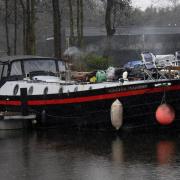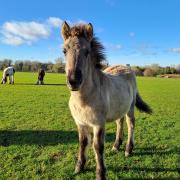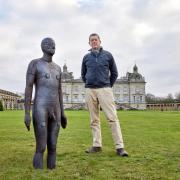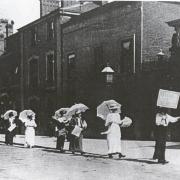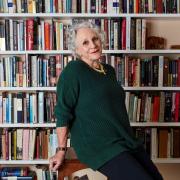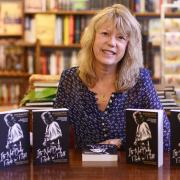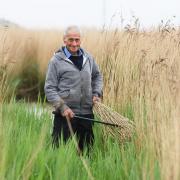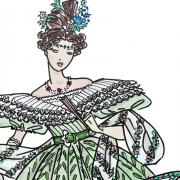Alfred Absolon farmed near Fakenham a century ago – and recorded the old ways of rural life in words and pictures.
If a cow fell ill in Colkirk, near Fakenham, when Alfred Absolon was a boy, villagers were as likely to try exorcism as veterinary medicine.
Belief in witchcraft was still strong in rural mid Norfolk at the end of the Victorian era and farm worker Alfred remembered seeing a rampaging cow treated by pulling a hair from her tail, soaking it in a drop of blood from her ear, and then burning it.
Instead of catapulting a cross cow into an even deeper rage, this unorthodox method apparently restored calm in the cow field.
Alfred said: ‘Sure enough the cow immediately became quiet again, letting her milk as a good cow should.’
The 19th century farm workers believed that a misbehaving cow might have cursed – and the person to blame would be able to feel the pain of the flames and be forced to remove the spell.
Alfred lived until 1979 but his stories stretched back through the generations, taking in tales of the farm workers who were old themselves when he was a boy.
He described his own experiences of farming in the days of heavy horses, traction engines and steam threshing machines.
More than a century later his grandson, Paul Absolon, has turned Alfred’s memoirs into a book, illustrated with family photographs.

Paul remembers being fascinated by his grandfather’s stories.
‘His first memory was the village celebration of Queen Victoria’s Diamond Jubilee of 1897. He told us tales of the village craftsmen, the workers on the farm, their beliefs and superstitions.
‘What I didn’t know at the time was that he was also writing down his memories of this period. I think he felt it important to make a record of the last years of a way of life that has now disappeared from the Norfolk countryside forever; that something was being lost to farming that he did not want us to forget.’
Alfred wrote ‘I am trying to preserve at least a little of those times for my sons, for their children, and anyone else who may want to know something of the soil whence they sprung.’
He was raised by an aunt on a small family farm Colkirk, and set up on his own farm after returning from serving in the First World War.
‘We grew up with tales of Alfred’s farm, the village where our father was born, and the farming heritage of north Norfolk,’ said Paul.
‘I remember Alfred talking about the traditions of rural life; folklore being every bit as important as science.’

After Alfred’s death his sons and their cousin collected his writing and stories. Paul, has now put them together as a memoir of farming in Norfolk between 1897 and 1927.
It includes the story of the potentially cursed cow and a detailed description of a steam-powered threshing machine.
‘The huge single cylinder engine looked cumbersome, but responded marvellously to the slightest touch of the driver on the regulator which controlled it,' writes Alfred. 'That godlike man with blackened face stood like a Roman charioteer, balanced on the footplate between the furnace door and the coal tender …’
Paul said: ‘What mattered to my grandfather was sharing the knowledge he had of the farming community, and the skills that had been passed down to him.
‘To a modern reader, his story may well seem as old as the tales of witches did to him – and that is part of its value. He hoped to find a way of preserving the memory of a way of life that was being swept away by modern mechanisation.’
Colkirk Tales by Alfred Absolon is published by Crumps Barn Studio crumpsbarnstudio.co.uk





